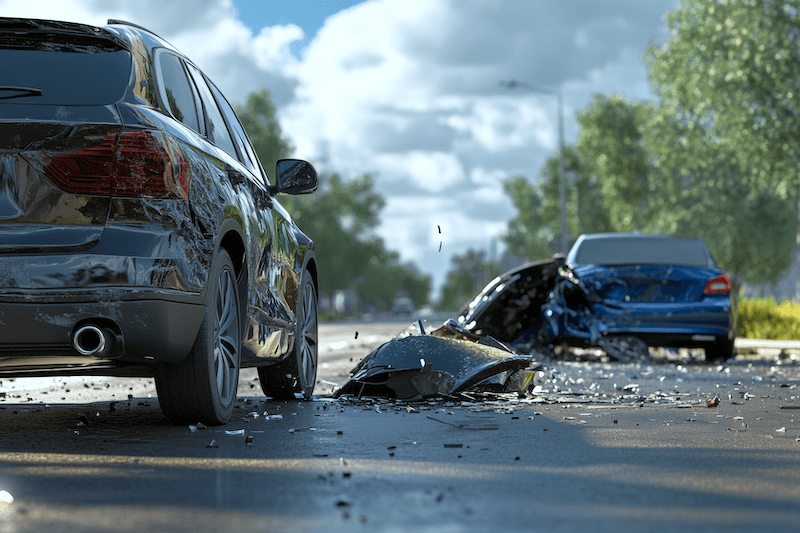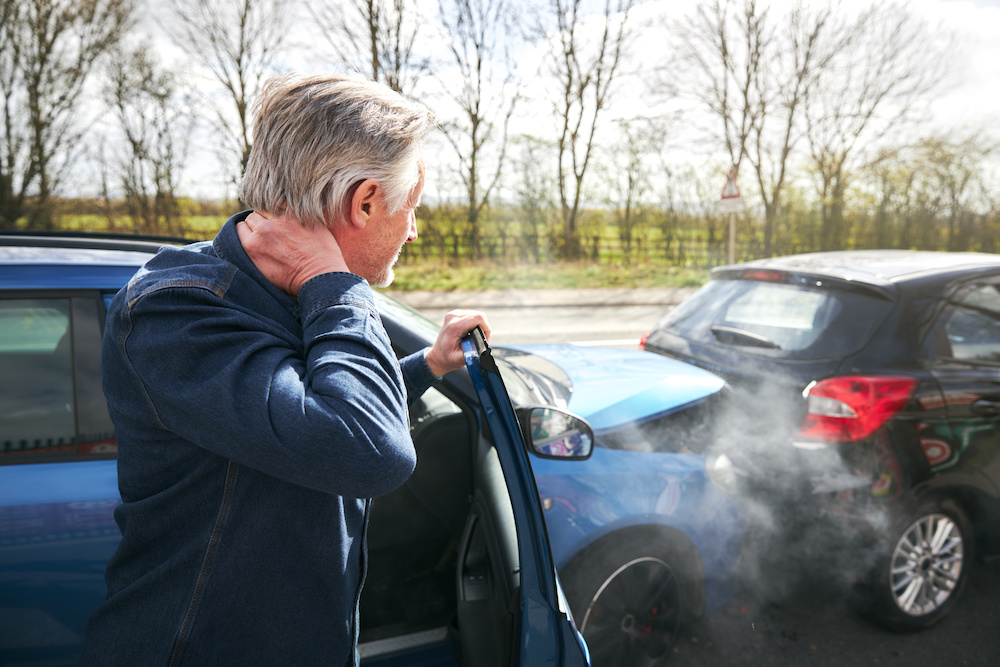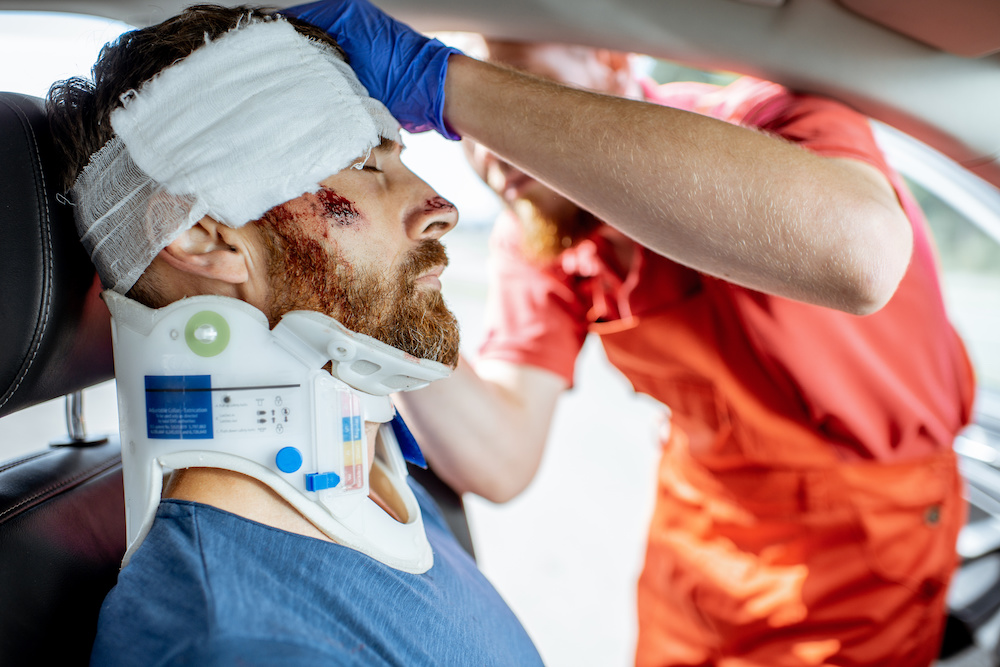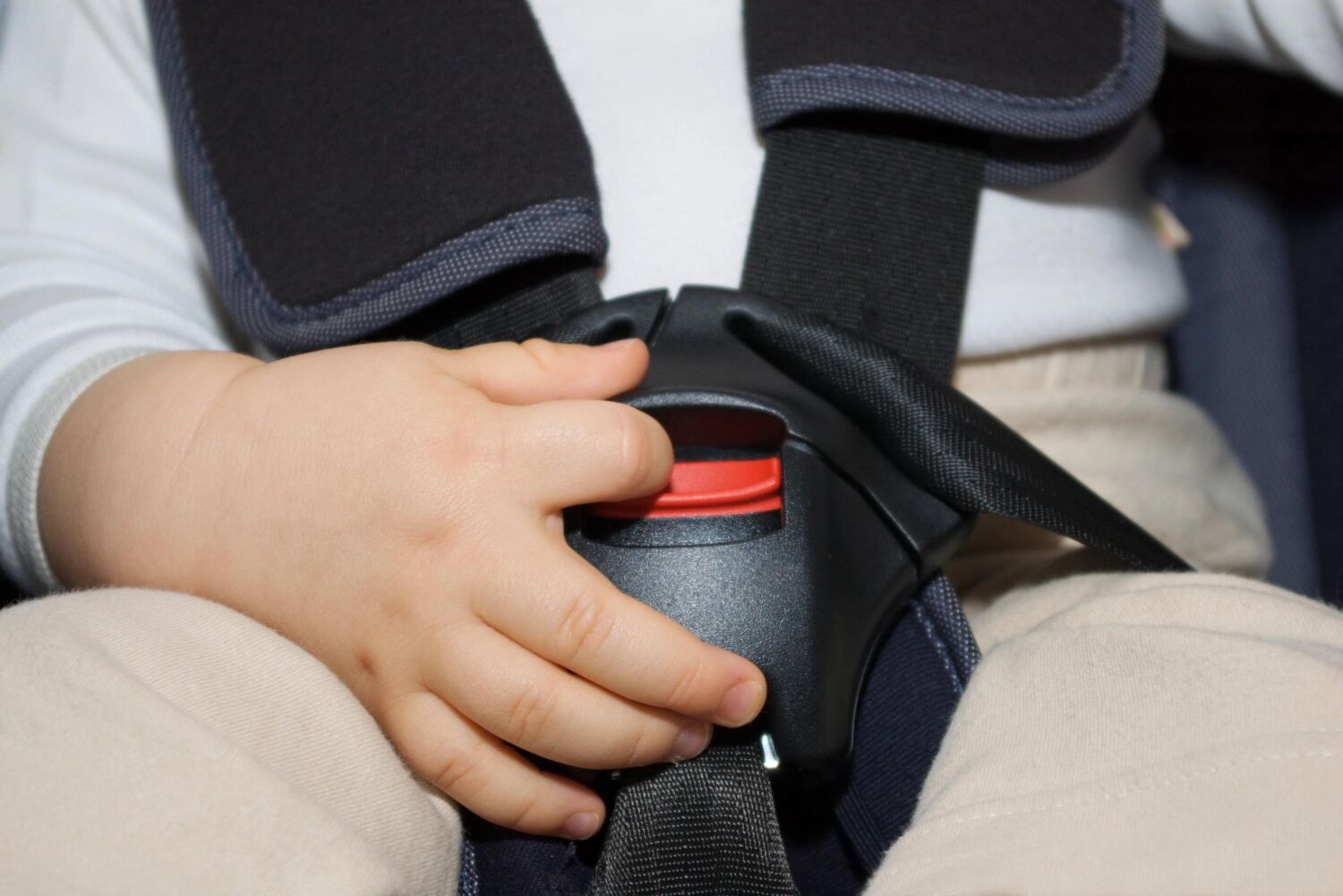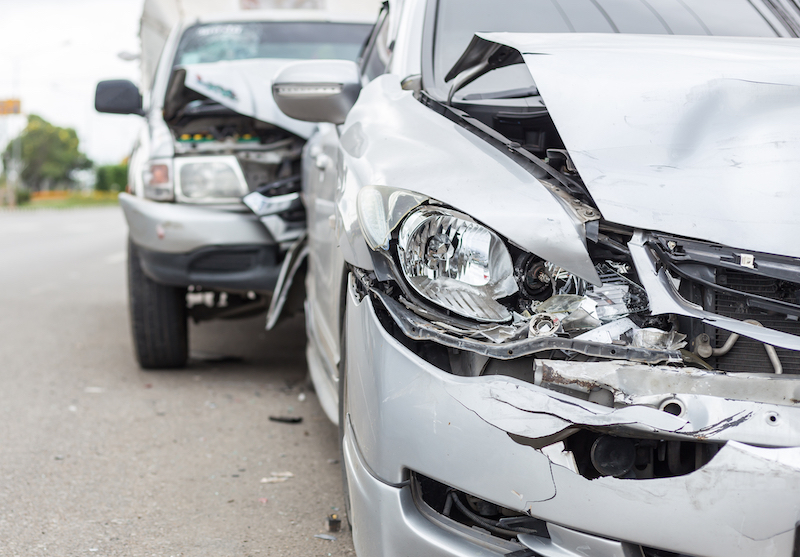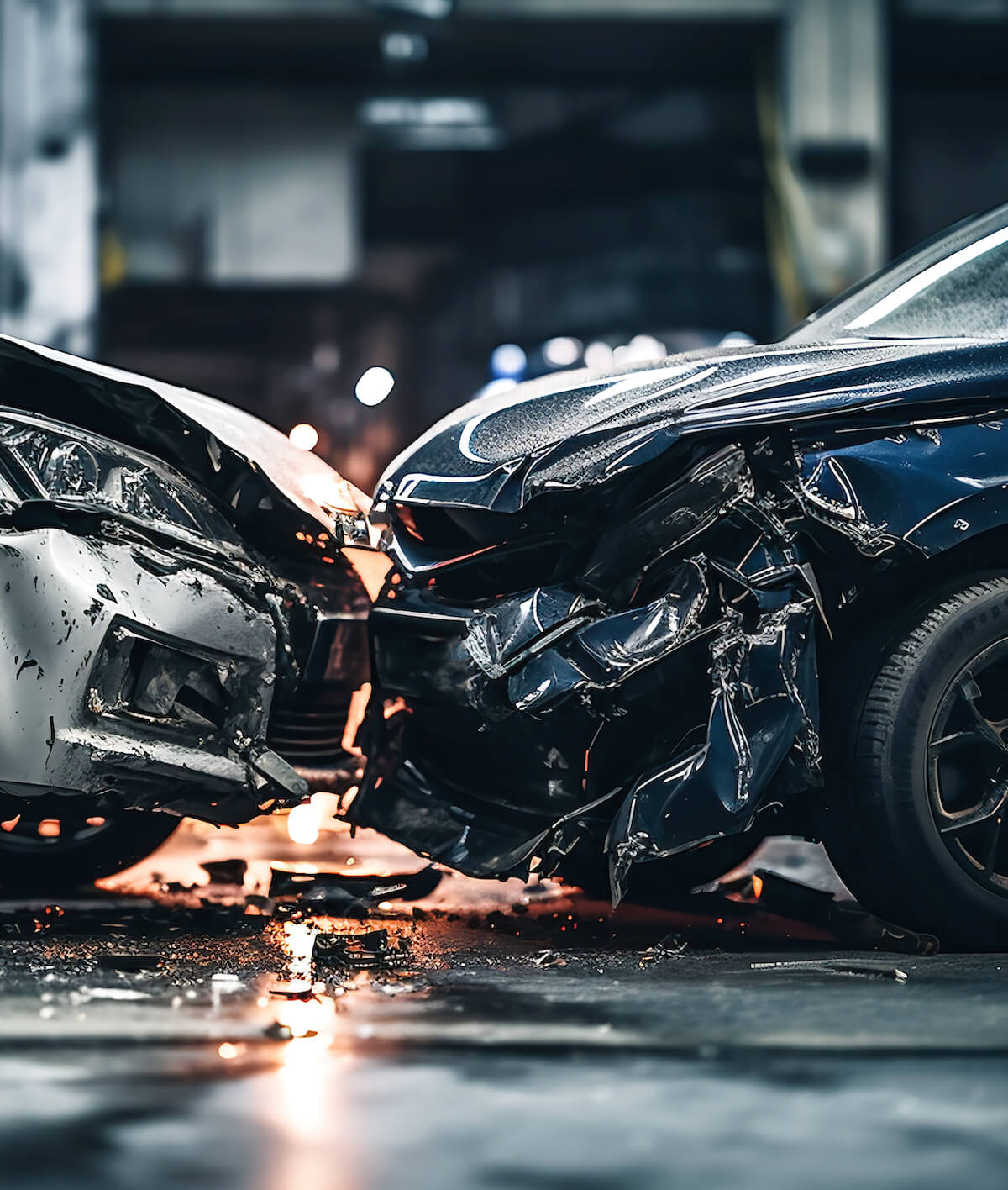Defective Airbag Injury Lawyers in Little Rock
Airbags are a critical safety feature in modern vehicles designed to protect drivers and passengers in a collision. However, when an airbag is defective, it can cause serious injuries often resulting in permanent disability and impairment. A defective airbag can sometimes even result in a tragic fatality.
If you or a loved one suffered an injury because of a defective airbag, you should seek compensation for your injuries. And remember, the steps you take after suffering an injury will affect the outcome of your case, so you should hire an experienced lawyer as soon as possible.
At Rainwater, Holt & Sexton, our Arkansas car accident attorneys will fight for you and help you pursue your right to total compensation. We know that auto manufacturers have large legal teams with one goal: to pay you as little as possible. We don’t let them. Our law firm is not afraid to go toe-to-toe with major auto manufacturers to fight for justice for our injured clients.
We’re here to help.
Respect
We treat all our clients with the utmost respect.
No fee
Our No Fee Guarantee® means you pay us nothing unless we win your case.
24/7 access
You get access to our legal team anywhere, anytime.
NATIONALLY RESPECTED. LOCALLY TRUSTED.
- How Does an Airbag Work?
- Defective Airbags Can Be Deadly
- Common Airbag Injuries
- Airbag Injuries to Infants and Children
- Injuries Caused by Defective Airbag Deployment Technology
- Injuries Caused by Improper Product Recalls
- What to Do After a Faulty Airbag Injures You
- Takata Airbag Recall
- Holding Airbag Manufacturers Responsible
- Book A Free Consultation
How Does an Airbag Work?
Airbags are located in the steering wheel and in the panel of the dashboard in front of the passenger. Some cars also have side-impact airbags that help protect passengers in T-bone collisions. A crash sensor connected to the airbags determines when to deploy the airbag.
Typically, head-on collisions will trigger this sensor and the airbag will deploy at a very high temperature and speed. An airbag inflates in about 1/20th of a second, helping to cushion you from the immediate impact of a collision.
Defective Airbags Can Be Deadly
Airbags can become defective in various ways. They might be manufactured incorrectly, improperly installed, or rendered defective after long-term exposure to extreme temperatures. If there is an issue with the deployment of an airbag, it can cause serious injuries or even death to the vehicle’s occupants.
An airbag’s deployment must be precisely timed to offer protection from injury. If the sensor malfunctions and the airbag deploys even a microsecond too late, it could result in severe injuries to the driver or passenger.
Some common problems with airbags include:
If the airbag does not deploy when it is supposed to, it will not be able to provide the necessary protection in a crash.
Airbags deploy only in certain crashes, such as frontal or side impacts. If the airbag deploys at another time, it can cause severe injuries to the occupants.
If the airbag deploys too forcefully, it can cause serious injuries or death to the occupants. This can occur if the airbag is defective or the sensors that trigger the airbag are not working correctly.
In some cases, ruptured airbags can send metal shards flying into the vehicle. These high-velocity shards pose a significant danger to the passengers of the vehicle.
Airbag Injuries to Infants and Children
Defective airbags can cause severe injuries to infants and children, including:
- Head injuries: Airbags can cause head injuries, such as skull fractures or brain injuries, if they deploy with too much force or strike the head at the wrong angle.
- Facial injuries: Airbags can cause lacerations, broken bones, and other injuries if they deploy too close to the face.
- Neck injuries: Airbags can cause neck injuries, such as whiplash or spinal cord injuries, if they deploy with too much force or strike the child’s neck.
- Chest injuries: Airbags can cause rib fractures, damage to internal organs, and other injuries to the chest if they deploy too forcefully.
Manufacturers designed airbags to protect adults in the event of a crash, but they can be dangerous for children. Because they are smaller and lighter than adults, the force of an airbag deploying can cause serious injuries or even death to a child. Children under the age of 12 should not ride in the front seat because they are at a higher risk of injury from the airbags in the front of the vehicle.
It is important to properly secure children in age- and size-appropriate restraints and to have the airbags in your vehicle checked regularly to ensure that they are in good working order.
Injuries Caused by Defective Airbag Deployment Technology
Defective presence sensors and crash detection systems can contribute to problems with airbag deployment and increase the risk of injury. Presence sensors detect the weight of a person in a particular seat, and they are an essential part of the airbag deployment system. If the presence sensors are not working correctly, the airbag may not deploy when it is supposed to or deploy when there is no one in the seat.
Crash detection systems assess the severity of a crash and determine whether the airbags should deploy. If the crash detection system is not working properly, the airbags might not deploy when needed or might deploy when the crash is not severe enough to warrant deployment.
Defective presence sensors and crash detection systems can lead to serious problems with airbag deployment and increase the risk of injury to the vehicle’s occupants.
Injuries Caused by Improper Product Recalls
If an airbag manufacturer does not issue a recall of a defective airbag quickly, it can have serious consequences, including:
- Increased risk of injury or death: If a recall is not issued quickly, people may continue to use the defective airbags and be at risk of injury or death in the event of a crash.
- Delay in fixing the problem: Late recalls make it harder to fix the problem and quickly get the defective airbags out of circulation. This means that the risk of injury or death may continue for a longer period.
- Legal consequences: If a manufacturer does not issue a recall of a defective airbag quickly, it may be held legally responsible, resulting in fines or lawsuits.
Airbag manufacturers must issue recalls as soon as possible to minimize the risk of injury or death and ensure that the problem is remedied efficiently.
Unfortunately, many airbag manufacturers do not issue prompt recalls when they realize their product is defective. They often do this to cut costs and save profits. Recalls can be expensive, and manufacturers may be hesitant to incur the costs associated with a recall if it believes that the problem is not widespread. They may also try to avoid a recall to steer clear of the potential legal consequences of issuing a recall. In some cases, manufacturers wait to issue a recall until they have had time to assess the legal risks.
What to Do After a Faulty Airbag Injures You
If you have been injured in an accident involving a faulty airbag, you and your loved one should take the following steps to protect your health and secure your chance at future compensation:
If a defective airbag has injured you, your top priority should be to seek medical attention. Even if you do not think you have been seriously injured, you must undergo a thorough medical exam to rule out underlying injuries.
Document the accident as thoroughly as possible. This can include taking photos of the accident scene, obtaining witnesses’ names and contact information, and keeping a record of your medical treatment and any other expenses related to the accident.
If the faulty airbag was responsible for your injuries, report the accident to the manufacturer and the National Highway Traffic Safety Administration (NHTSA).
Depending on the circumstances of the accident, you may be entitled to compensation for your injuries. This can include medical expenses, lost wages, and damages for pain and suffering. An attorney with experience in product liability cases can help you determine your legal options and represent you in court.
Stay up to date with any recalls or investigations related to the faulty airbag and your lawsuit.
The most important thing to do after an accident involving a faulty airbag is to seek legal representation. Your product liability attorney will know what to do next and will build a solid case against the manufacturer.
Gathering evidence and proving liability is difficult when you’re injured. That’s why so many injured accident victims turn to Rainwater, Holt & Sexton after an accident. We know how to gather the evidence you need to help you achieve maximum compensation.
Injured Due to an Airbag Deployment? Call Us Today.
Takata Airbag Recall
The Takata airbag recall is one of the largest and most complex recalls in automotive history, affecting millions of vehicles from various automakers worldwide. A defect in specific Takata airbag inflators prompted the recall.
Specific Takata airbags were manufactured using an ammonium nitrate-based propellant. At high temperatures, this caused airbags to inflate improperly. When a crash triggered airbag deployment, the defective airbag ruptured, launching metal shrapnel into the vehicle cabin. This defect has been linked to hundreds of injuries and at least 27 deaths globally.
The recall affected a wide range of vehicles from automakers equipped with Takata airbags. The National Highway Traffic Safety Administration (NHTSA) lists all the affected vehicles on its website, which you can search by make, model, and year. More than 19 automakers recalled their car model, totaling over 41.6 million vehicles.
If your vehicle is affected by the recall, you must get it repaired as soon as possible. The defect poses a severe risk to the safety of you and your passengers, and the longer you wait to get the repair, the greater the risk becomes.
To find out if your vehicle is affected by the recall, visit the NHTSA’s website (www.safercar.gov) and use the “Search for Recalls” tool to find your car.
Holding Airbag Manufacturers Responsible
Our law firm understands the importance of holding irresponsible manufacturers accountable for the harm they’ve caused. Bringing negligent airbag manufacturers to justice is essential for several reasons:
Defective airbags can cause serious injuries or even death. Legal action against manufacturers helps to ensure that the defective product is fixed and that similar defects are prevented in the future.
When a defective product causes harm, the manufacturer has a moral and legal obligation to compensate the victims. Holding the manufacturer accountable helps ensure that justice is served and that the victims are fairly compensated.
Punishing manufacturers for their actions can serve as a deterrent to other companies, helping to prevent similar incidents from occurring in the future. This is especially important in the case of product recalls, where the manufacturer may be incentivized to cut corners or prioritize profits over safety.
In addition to these specific benefits, holding defective airbag manufacturers responsible for negligence can also help address the bigger problem of corporate accountability. When companies are held accountable for their actions, it helps to create a level playing field and promotes fair competition. It also protects consumers from needless harm and ensures that companies are held to high standards of safety and quality.
Personal Injury Resources
















